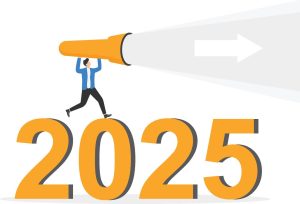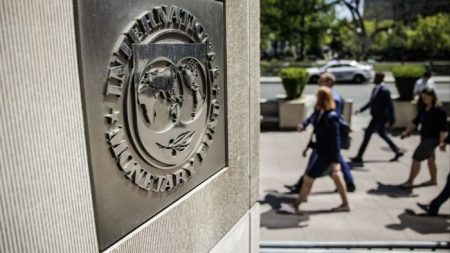US mortgage rates plummeted this week after weaker-than-expected employment data raised the odds of the Federal Reserve cutting interest rates next month. It’s a big step in the right direction for America’s notoriously unaffordable housing market.
The standard 30-year fixed-rate mortgage averaged 6.47% this week, mortgage financing giant Freddie Mac said Thursday. That’s down substantially from last week’s average of 6.73% and marks the lowest level since May 2023. This week’s drop was the biggest since late December.
Mortgage rates have steadily fallen over the past several weeks since reaching a 2024 peak of 7.22% in early May. Rates are down from a two-decade high seen late last year.
“The decline in mortgage rates does increase prospective homebuyers’ purchasing power and should begin to pique their interest in making a move,” said Sam Khater, Freddie Mac’s chief economist, in a release.
“Additionally, this drop in rates is already providing some existing homeowners the opportunity to refinance, with the refinance share of market mortgage applications reaching nearly 42 percent, the highest since March 2022.”
Affordability remains tough — but lower mortgage rates may help
Home prices are sky-high nationwide and demand for housing still outstrips supply, despite some steady improvements throughout this year. Purchasing a home is out of reach for many buyers, especially those with low incomes living in areas seeing fast price growth, such as New York, San Diego and Las Vegas, according to data from S&P Global. The situation isn’t any better for renters, a recent report from the Harvard Joint Center for Housing Studies showed.
But borrowing costs are poised to drop further this year and economists told CNN previously that the worst for the housing market may already be in the rear-view mirror.
Mortgage rates track the benchmark 10-year US Treasury yield, which moves in anticipation of the Fed’s decision on interest rates. Bond yields dropped precipitously last week after the government’s latest job report showed that unemployment last month rose to its highest level since October 2021.
“Homebuyers who were priced out a few months ago should re-check whether they can enter the homebuying market if they have secure jobs,” Lawrence Yun, chief economist of the National Association of Realtors, said in a note Friday when yields tumbled.
The Fed said last week at its monetary policy meeting that it is wary of any risks to the job market. Weaker labor data would allow the Fed to lower interest rates, but the central bank does not want the economy — or the labor market — to drop off a cliff.
Wall Street is currently betting that the Fed will cut rates aggressively this year, pricing in a large, half-point rate cut next month when Fed officials convene to set policy, followed by two quarter-point cuts by the end of the year, according to the CME FedWatch Tool.
The Fed is still watching inflation data closely, waiting for additional evidence that price pressures are coming under control, but any further signs that the job market is deteriorating could nudge the central bank to cut rates more aggressively. The next reading on inflation comes Wednesday, when the Consumer Price Index for July will be released.
A persistent undersupply of housing has exerted upward pressure on home prices in many markets across the country, but some relief is ahead.
Total housing inventory has increased every month this year so far, registering at 1.32 million units at the end of June, up 3.1% from May and a stunning 23.4% higher from a year earlier, NAR figures show. But some metropolitan areas such as Tampa, Denver and Minneapolis have seen a considerable pickup in residential construction over the past year, taking some steam out of housing costs in those places.
The median price of a previously owned home in the United States rose to $426,900 in June, up 4.1% from a year earlier, according to the latest data from the National Association of Realtors. That was the second consecutive month that home prices reached an all-time high and was the twelfth-straight month of rising prices.
Homes have become so expensive in recent years that the number of US cities where first-time buyers face a $1 million price tag for an average, entry-level starter home has nearly tripled since 2019, according to research from Zillow.
The tough market has also taken a toll on buying activity: Sales of previously owned homes fell 5.4% in June, NAR said.
Lower mortgage rates and a bigger housing stock will eventually entice more buyers to eventually enter the market.
“Buyers are biding their time, waiting for rates to fall further and for more inventory to come onto the market,” Lisa Sturtevant, chief economist at Bright MLS, said in a note Thursday. “Buyers are flexing a bit. While it is most certainly not a buyer’s market, it has been a long time since buyers have had this much leverage in the market.”
Read the full article here













